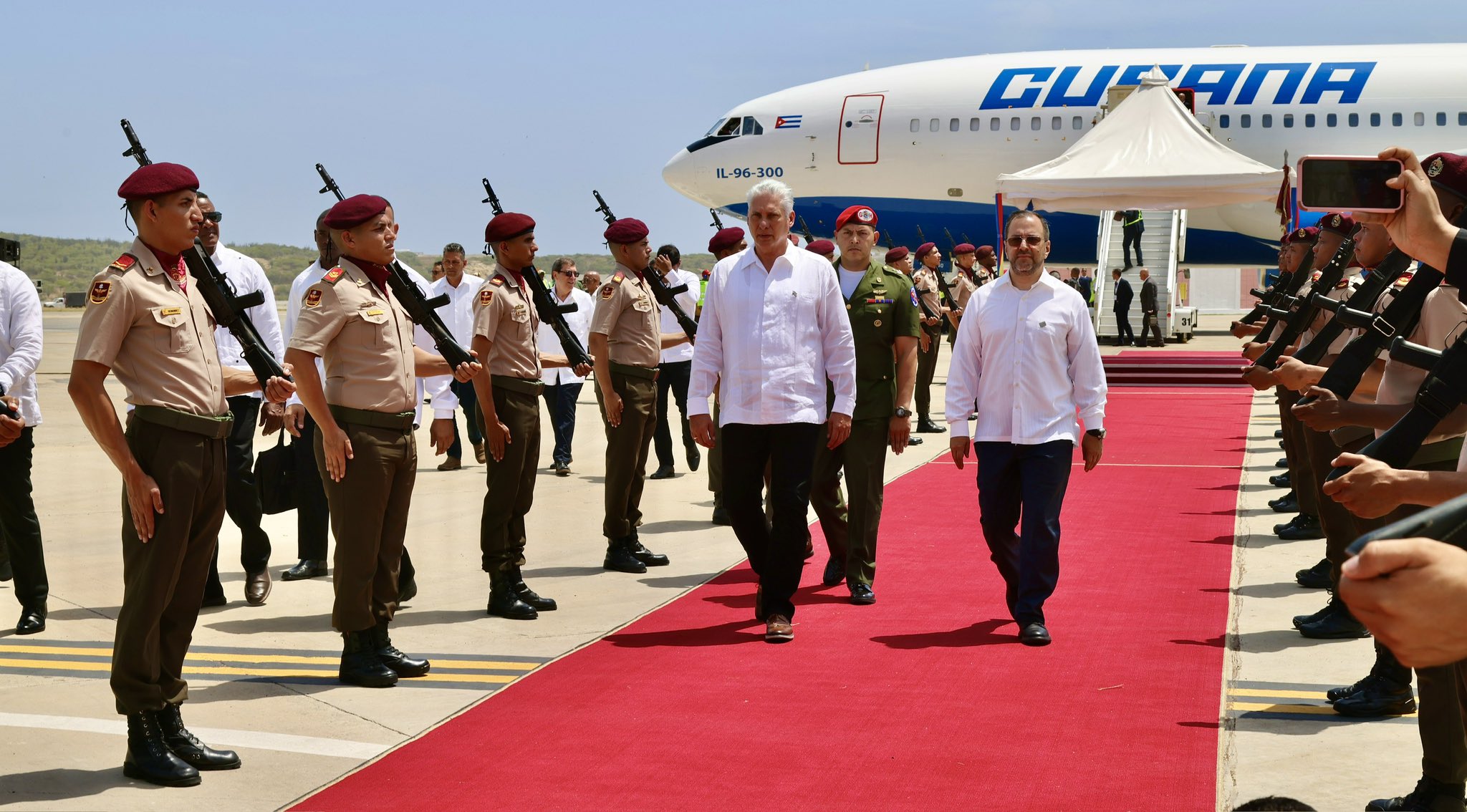¿Por qué Cuba recibe tanto apoyo en ONU? / Why does Cuba receive so much support?
Estamos en el centro de Nueva York, en Manhattan, a la entrada del edificio donde se deciden los hilos de la diplomacia mundial . Las Naciones Unidas. Quizás usted como muchos se ha preguntado cómo es posible que la voz de una pequeña isla , de solo 11 millones de habitantes, resuene con tanta fuerza cada vez que uno de sus líderes habla ante ese hemiciclo, donde están representadas todas las naciones del orbe. Y lo cierto es que se trata de un derecho ganado.
Cuba dejó de ser solo una isla el 1 de enero de 1959, la revolución de la Sierra Maestra le abrió un espacio decisivo en el mapa político mundial. Aquí estuvo Fidel Castro en 1959, poco después del triunfo de la Revolución, pero hizo historia en 1960, cuando habló en las Naciones Unidas por más de 4 horas.
Cuando un hotel de esta ciudad de Nueva York, del centro de Nueva York, le exigió condiciones extremas, Fidel ordenó que se compraran casas de campaña y estuvo a punto de acampar en uno de los jardines de las Naciones Unidas.
Pero una invitación de Malcolm x y Bob Taber lo llevó al barrio de Harlem, donde viven los pobres, los humildes, los puertorriqueños, los negro de Nueva York.
Contrario a lo que muchos creen, el territorio que ocupa las Naciones Unidas no es propiedad de los Estados Unidos, sino que está bajo la jurisdicción de la propia Organización.
Lo que sucede es que a Washington de vez en cuando se le olvida e intenta imponer su voluntad.
Cuba nunca ha pasado desapercibida en Nueva York ni tampoco las Naciones Unidas . Así sucedió cada vez que Fidel hizo alguna visita y también cuando el General de Ejército asistió a las celebraciones por el 70 aniversario de las Naciones Unidas en septiembre del 2015.
La próxima visita del nuevo presidente cubano, Miguel Díaz Canel, también levanta muchas expectativas. Es la primera vez que asiste a las sesiones de la Asamblea General y también la primera vez que visita los Estados Unidos.
Lo que nadie pone en duda es que en ese hemiciclo se escucharan una vez más los temas que Cuba ha defendido durante décadas: el derecho a la paz, la necesidad de un desarme equitativo y el derecho de las naciones pobres a condiciones internacionales que le permitan un desarrollo justo.
La diplomacia cubana, a diferencia de otras que se mueven según sople el viento, se basa en principios y valores, y esos siguen siendo los mismos que en 1960, cuando Fidel dijo: cese la filosofía del despojo y cesará la filosofía de la guerra.
English version
We are at the heart of New York, in Manhattan, at the entrance of the building where world diplomacy decisions are made: the United Nations. Perhaps, like many others, you have wondered how come the voice of a small island of only 11million, resounds so loudly each time one of its leaders addresses this Assembly, where all the nations of the world are represented. As a matter of fact it is a well-earned right.
Cuba stopped being just an island on January 1st, 1959. The Sierra Maestra revolution placed Cuba in the world’s political map. Fidel Castro was here in 1959, shortly after the triumph of the Revolution, but he made history in 1960, when he spoke to the United Nations for over four hours.
When a downtown New York hotel demanded him imposible conditions, Fidel ordered his staff nearly set up camp in one of the United Nations gardens.
He was invited by Malcolm X and Bob Taber to come to Harlem, where the poor, the humble, the Puerto Ricans and the blacks of New York live.
Contrary to widespread belief, the area where the United Nations is does not belong to the United States but it is under the jurisdiction of the international organization.
The thing is Washington sometimes forgets that and tries to impose its terms.
Cuba has never gone unnoticed in New York or the United Nations. That was the case whenever Fidel visited it and also when Army General Raul Castro attended the ceremonies on the 70th anniversary of the United Nations in September 2015.
The upcoming visit of Cuba’s new president, Miguel Díaz Canel, has also raised a lot of expectations. It’ll be the first time he attends the General Assembly sessions and his first visit to the United States.
There is no doubt that the ideas Cuba has upheld for decades will once more be heard in that Assembly, namely: the right to peace, the need for equitable disarmament and the right of poor nations to a world order conducive to their just development.
Cuban diplomacy, unlike others which go as the wind blows, is based on principles and values, that are those of 1960, when Fidel said: Let the philosophy of plunder disappear and the philosophy of war will have disappeared.

